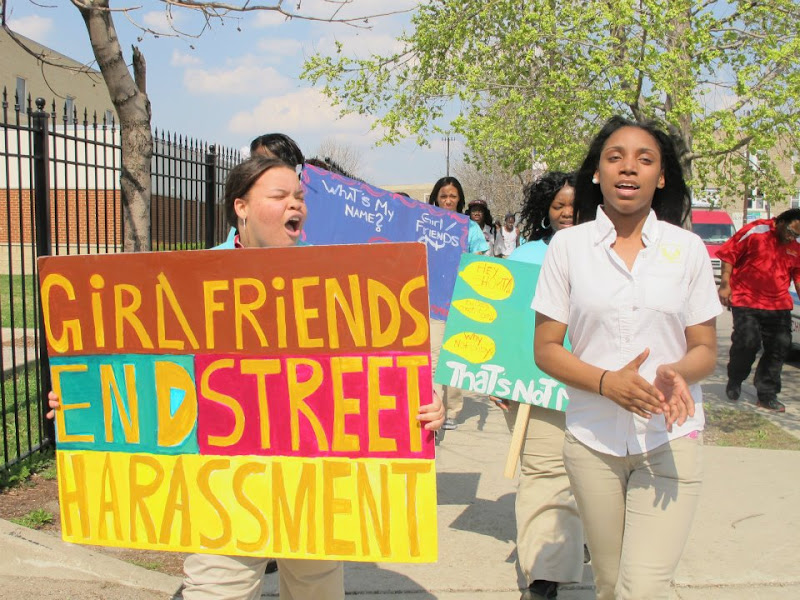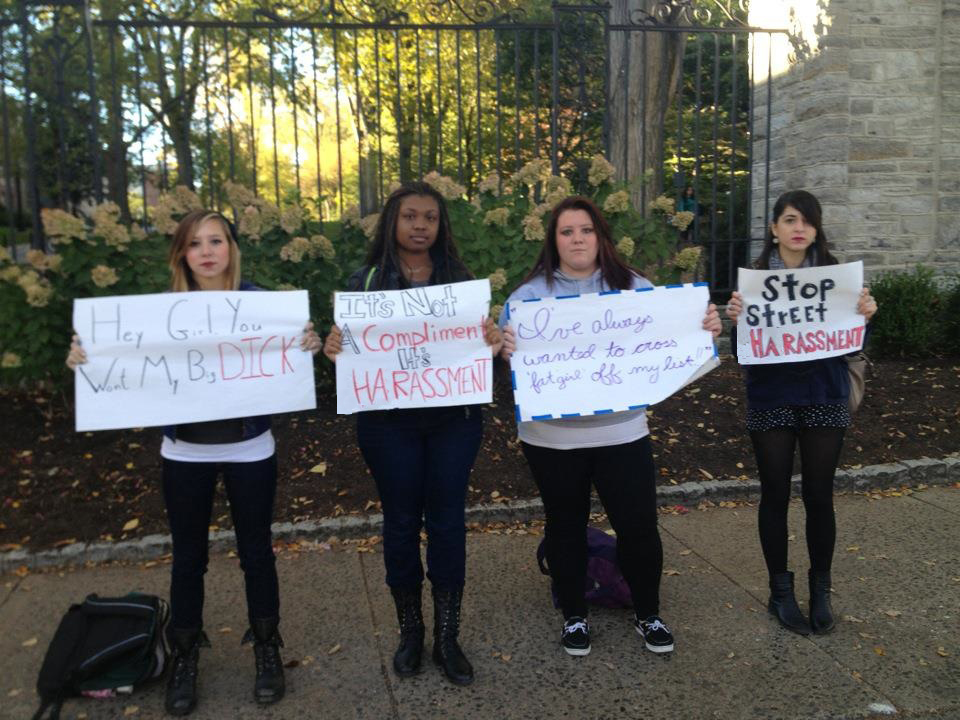Catcalling is More Sinister Than You Might Think – “Our research supports previous findings that the rampant sexual objectification of women, an act of sexual terrorism, can heighten women’s fears of incurring physical and sexual harm,” says lead author Dr. Laurel Watson, a psychology professor specializing in traumatology at the University of Missouri-Kansas City.
I Confronted Every Man Who Catcalled Me (And It Didn’t End Well) – “How can you explain to a stranger that a compliment makes us feel afraid? That words like “gorgeous” and “beautiful” sound like threats when we hear them whispered to us on an empty street late at night? That we feel uneasy, objectified and uncomfortable when you say this to us while we’re going about our normal routine, not asking to be judged on our appearance out loud? That this thing they do for fun is at the expense of our peace of mind?”
Victim of Eve-Teasing, Teenager Kills Self – “A family member of the victim said, “We had gone to the police and complained about the incident. They did not take appropriate action against the guilty, which led to the girl’s death.””
SHE Teams Power Fight Against Eve-Teasing– ““We have constituted 100 such teams where police personnel in plainclothes mix with the crowd outside colleges, popular hangouts, cinemas and in public transport. They go armed with a small hidden camera that records the goings-on as they happen.” Sometimes, women police personnel themselves end up as “victims” and the entire act is caught on camera. The eve-teasers are immediately taken to the police station where his family is called in and he is let off with a warning and a petty fine.”
Ain’t No Hollaback Girl – Men And Women Speak Out Against Street Harassment Through Hollaback!NOLA– “Hollaback, which started in New York, is a non-profit movement that aims to end street harassment. Hollaback branches exist in 25 countries and 84 cities. The city of New Orleans was finally added to the list last December. According to Hollaback’s mission statement, street harassment is a form of sexual harassment that takes place in public spaces. They claim that at its core, street harassment is a power dynamic that constantly reminds historically subordinated groups of their vulnerability to assault in public places.”
Students Enact Skits About Violence Against Women – “Concerns about violence against girls and security of school students were highlighted in a unique drama competition on Sunday. Students’ groups from 15 schools performed on issues like eve teasing, addiction, sexual abuse of girls, adolescence and crime against women. The competition was part of ‘Nirbhay Vidyarthi Abhiyaan’-an initiative taken up by the Pune police to create awareness about crimes against students. A total of 116 schools in the city had registered for the drama competition. Eighty-five schools came up with performances and 15 were selected for the finals.”
Video: When Men Accidentally CatCall Their Own Mothers – “Often in trying to get men to understand how awful street harassment is, we use rhetorical techniques like “Would you talk to your mother like that?” But thanks to a project by Everlast, the men in this video really did catcall their mothers. The results are exactly as epic as you’d expect.”
Wearing Her “Whorepants” – How One Runner Turned Getting Harassed Into a Movement– “A year ago, I wrote a column for the Philadelphia Inquirer about female runner harassment. I didn’t offer safety tips. Instead, I called for us to take the blame off women who were harassed and hoisting it on to the people doing the harassing. To prove that point, I wrote about what had happened to me when I wore a pair of purple below-the-knee Nike capris, which I’d bought for $10 at the Nike outlet in Atlantic City. Reaction was swift and fierce.”
Are Women Traveling Into a Safer 2015? – “Every 51 minutes, a woman faces harassment or assault in India’s public spaces, according to a 2011 report by the National Crime Records Bureau. Staggering numbers of reported and unreported cases of violence and harassment make transportation difficult and dangerous for women and girls, especially after dark. So should safety issues simply keep women and girls indoors—or does their vulnerability in public spaces highlight a desperate need for gender considerations in designing and planning public transport?”








